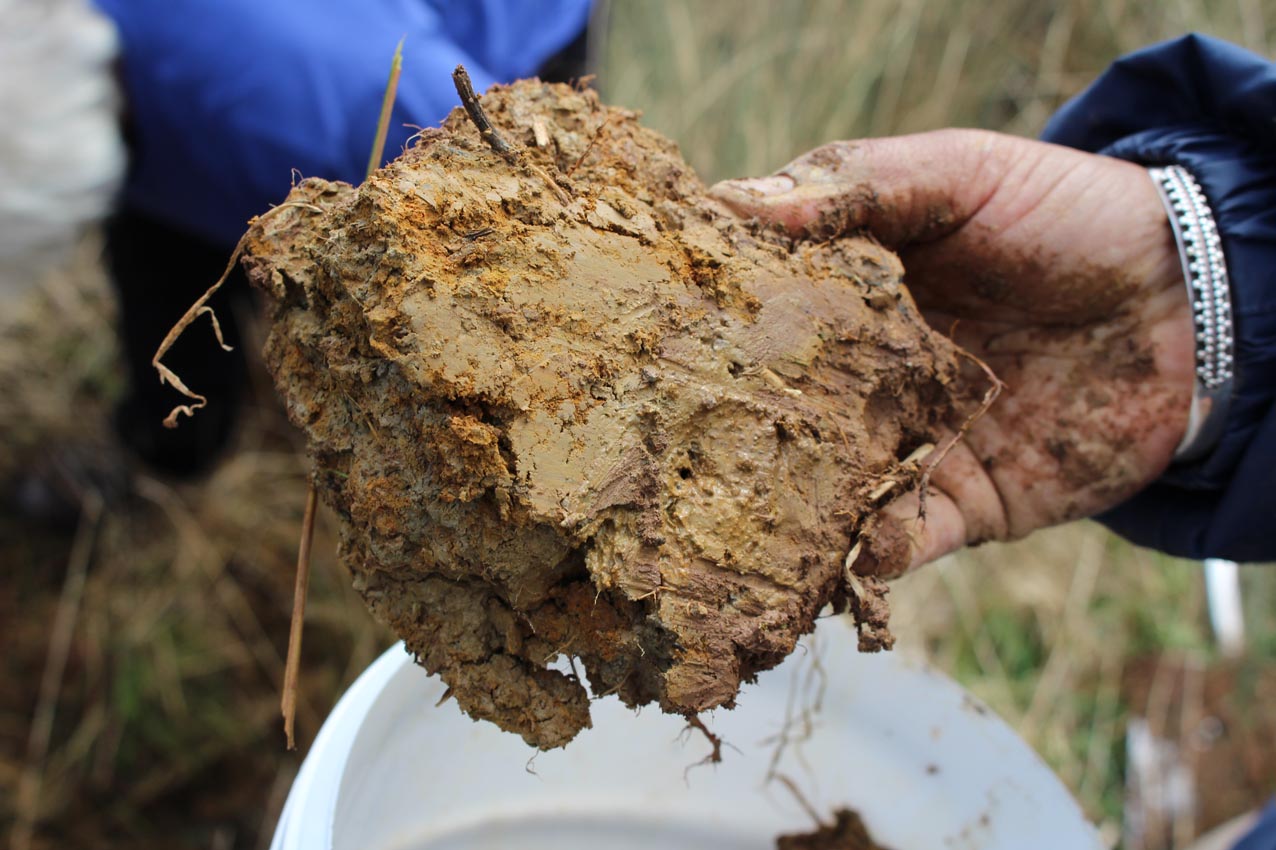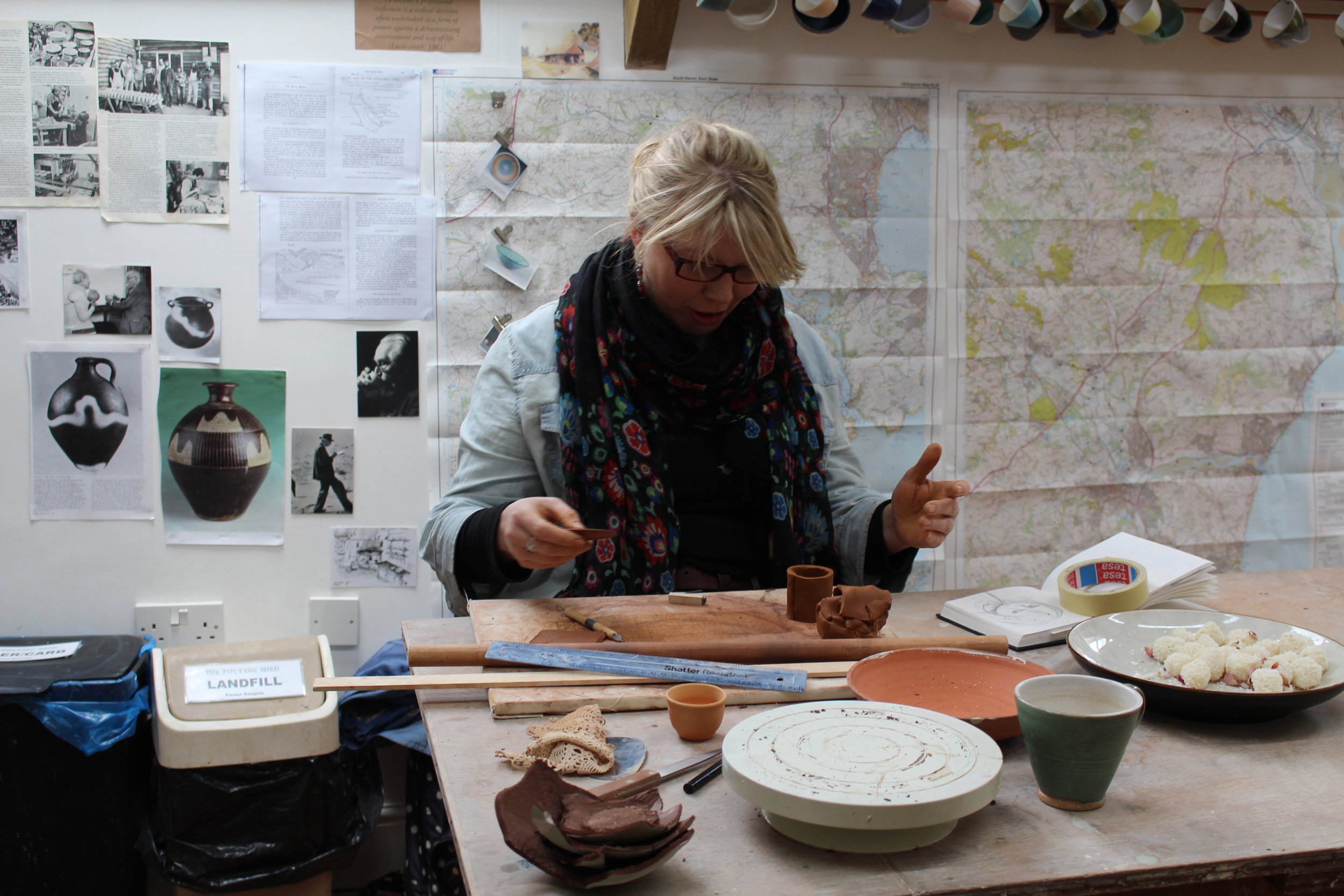In 2014-15, Earthlinks UK working with local potters from The Potting Shed, ran a year long project for people from 8 villages to re-learn some of the heritage livelihood pottery skills of the Devon region. For the learning to be holistic, the project covered the ENTIRE process of making pots – from knowing where to prospect for clay in the landscape, to finally eating out of the pots they made.
The thinking behind the project included:
- Creating beautiful objects for everyday use with your own hands brings confidence, hope and well-being to a human being. It encourages the development of intellectual and practical skills, visual sensitivity and a working knowledge of tools, materials and systems.
- Learning transferrable skills, creates vibrant and flourishing communities, social inclusion, contributes to the economy, culture and society and is a starting point for leisure and livelihood pursuits which can be engaged in for the rest of their lives.
- In these times of local and global austerity and increased awareness of environmental issues, learning these attributes of 'make and mend' shapes and informs the concepts of local, low cost, beautiful, functional, re-claim and traditional. Community work changes negative thoughts and attitudes into positive ones. It encourages people to move to go from an ‘I can’t’ to an ‘I can’ mindset , re-discovering the vibrancy of their own local communities and the creativity therein.
Project activities:
The participants learnt about various local clays: the china clay of south Dartmoor, the ball clays of the Sticklepath Fault between Newton Abbott and Bovey Tracey; and the tertiary clays, from a variety of local sources. They dug their own clay out of the ground from near Exeter, after which they sorted, soaked and sieved it for use. They fired their pots in an electric kiln, in a wood fired dustbin kiln ( which also they learnt how t9o make for themselves) and in a pit firing. One group experimented with locally sourced glaze materials. Wood ash, nettles, dock leaves and seaweed ashes and fired and ground seashells. There were public talks from well known potters to inspire- Joss Hibbs, Dartmoor, Sandy Brown, Appledore and Mel Chambers, Cornwall. Over 300 people came and benefited from these evenings. The project culminated with a meal at Dartington Village Hall, all served in plates and dishes made by the participants of course!
What did we achieve?
- People now know more about the clay and pottery tradition and heritage of this county. Hence increased awareness and sensitivity to buying ‘local’. People felt ‘empowered’ and connected with their land in a unique way.
- Many participants who came feel enabled to become more productive members of their local community. Some told us how much more their sense of belonging and pride in the county and community has increased after the project! Communities with all generations living locally with less migration of young people to cities, ensures the local regions are economically healthier and more viable with stronger communities – a mother and daughter on the course proved that.
- People have shifted their understanding of craft and local Devon pottery and many are telling us where they are sourcing local work from. Some said it has helped them to be less wasteful and ‘throw-away, get another’ when they saw the time, energy and materials that go into making something.
- Some people told us how much healthier they were feeling after doing the project! The obvious emotional and mental benefits of feelings of belonging in our communities are well documented. Absorption in rhythmic creative movements not only occupies and distracts the brain, but has also been clinically proven to raise levels of serotonin, whilst inducing the relaxation and ‘mindfulness’ more often associated with meditation. It quietens chronic stress and anxiety, improves dexterity.
- Participants gained confidence from developing skills in handling materials and tools, from transforming raw materials into objects and from making their creative vision real. For some, this translated into a rare and valuable feeling of being in control of their immediate environment, and the deep desire to pass the skills they learnt, to others in their communities. The project taught how to use old and new skills in a modern context. More people are now considering using this learning to become a livelihood choice.
- Participants made life long friends - research suggests that social connectedness is perhaps the single most important factor in distinguishing happy people from those who are merely ‘getting by.’







